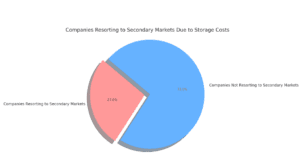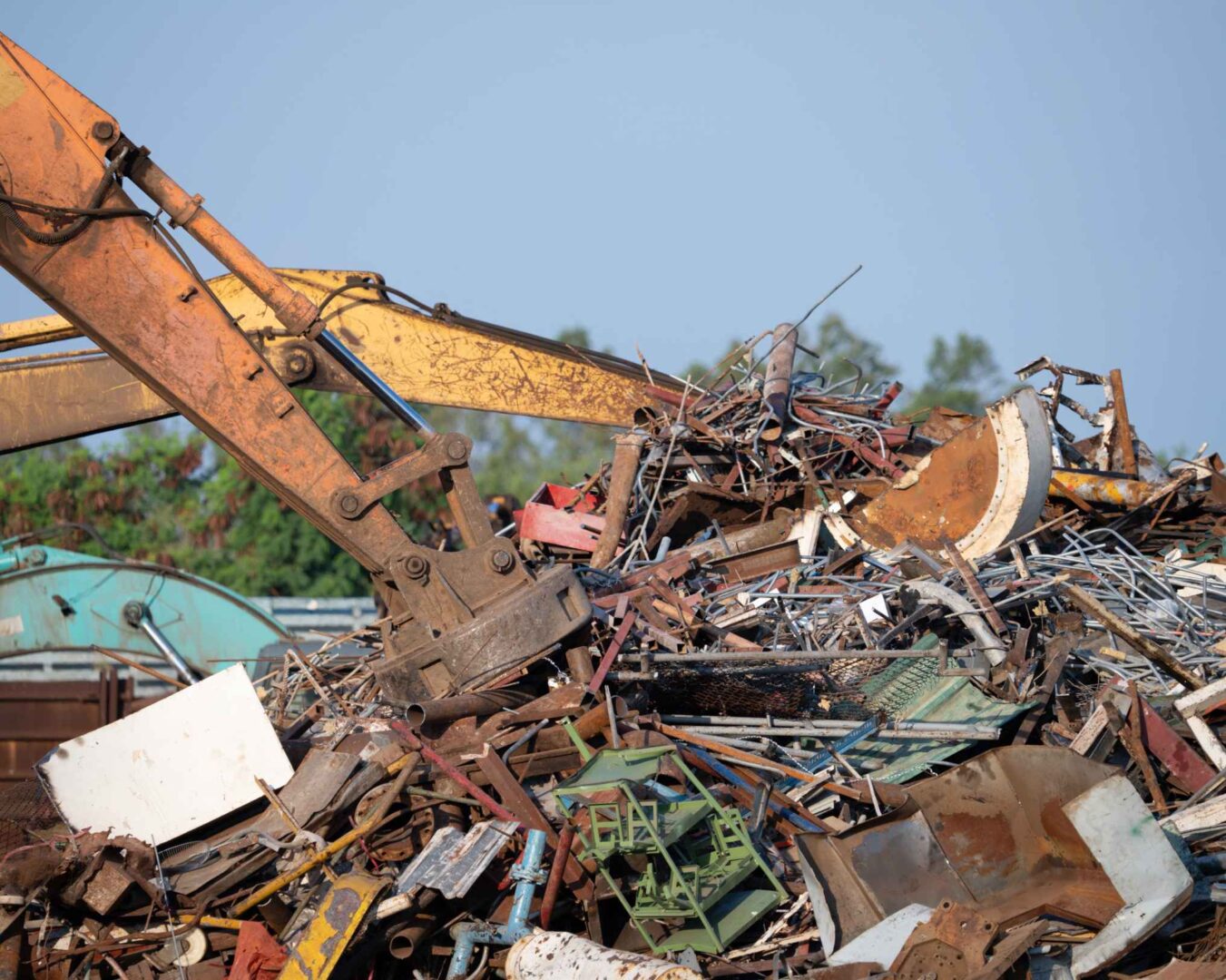In the realm of business, Inventory Liquidation has long been perceived as a necessary evil, a process to mitigate the financial strain of excess stock.
However, in 2023, the narrative is shifting, and the conventional methods of dealing with surplus inventory are being critically evaluated.
According to a detailed study by Vue.ai, the financial implications of holding excess inventory are not only confined to cash flow disruptions but also extend to inventory devaluation and other hidden costs.
But what if there was a method to transform this apparent adversity into an opportunity, not just for businesses but for communities at large?
This is where Beneficial Reuse steps into the spotlight, offering a sustainable and socially impactful alternative to traditional inventory liquidation.
Table of Contents
The Real Pain Points of Excess Stock:
Excess inventory isn’t just about having too many products on shelves. It’s a multifaceted issue that impacts various facets of a business. From tying up capital to affecting brand reputation, the repercussions of surplus stock are far-reaching.
- Storage Constraints: As highlighted by CNBC, over 27% of companies are resorting to selling excess inventory on secondary markets due to skyrocketing storage costs.
- Cash Flow Management: Cash flow is the backbone of any business. Excess stock can lead to financial stagnation, restricting growth and innovation.
- Business Solvency: With changing market dynamics, unsold goods can quickly transition from assets to liabilities, posing a threat to business solvency.
- Market Dynamics: Predicting market trends is more art than science. With rapid shifts in consumer preferences, businesses often find themselves with outdated stock.
- Product Lifecycle: In industries like tech and fashion, products have a limited shelf life. Holding onto outdated stock can lead to significant markdowns and losses.
Traditional Liquidation Methods: More Harm than Good?
Liquidation, for years, has been the go-to solution for dealing with excess stock. But is it the best approach?
- Auction Frustration: Auctions are unpredictable. While they offer a platform to sell, they don’t guarantee value, often leading to undervaluation.
- Wholesale Confusion: Wholesale, though seemingly safe, is a gamble. Without a deep understanding of market dynamics, it can result in losses.
- The Pallet Dilemma: Pallets of unsold items not only consume space but also resources. The decision matrix of when to buy, hold, or liquidate is intricate and challenging.
The Financial Implications of Holding Excess Inventory
Holding onto excess inventory is no exception. According to a report by the U.S. Small Business Administration, businesses that fail to manage their inventory effectively can see a decrease in cash flow, which can have a ripple effect on other areas of operation.
- Cash Flow Disruption: Every item sitting on a shelf represents tied-up capital. This can strain a company’s liquidity, limiting its ability to invest in growth opportunities or cover operational costs.
- Inventory Devaluation: Products, especially those in the tech and fashion sectors, can quickly become obsolete. The longer they sit in a warehouse, the more their market value decreases.
- Hidden Storage Costs: Beyond the obvious rental costs of warehouse space, there are hidden expenses like insurance, utilities, and personnel salaries that add up over time.
Beneficial Reuse: The Future of Inventory Management
In a world where sustainability is more than a buzzword, Beneficial Reuse emerges as a beacon of hope.
- Beyond Just Liquidation: Beneficial Reuse isn’t just an alternative, it’s a movement. Redirecting excess inventory to communities in need creates a ripple effect of positive change, both socially and economically.
- Community Connection: It’s about impact. Donated items can uplift communities, providing them with essential resources and enhancing a company’s corporate social responsibility profile.
- Economic Sensibility: With Beneficial Reuse, businesses can enjoy tax deductions, turning potential losses into significant savings.
- Warehouse Cost Reduction: A swift inventory liquidation process means reduced storage costs. With Beneficial Reuse, businesses can free up warehouse space efficiently and sustainably.
The Global Shift Towards Sustainable Business Practices
The 21st century has witnessed a global shift towards sustainable business practices. A study from Harvard Business Review highlighted that companies with robust sustainability practices see an average of 4.8% higher operational performance than their counterparts.
- Consumer Demand: Modern consumers are more informed and prefer to support businesses that prioritize sustainability. This shift in consumer behavior is driving businesses to adopt eco-friendly practices.
- Regulatory Benefits: Governments worldwide are offering incentives and tax breaks to companies that adopt sustainable practices, making it financially beneficial in the long run.
- Long-term Viability: Sustainable practices ensure that businesses remain viable in the long run by conserving resources and building a positive brand image.
Happen Ventures’ Beneficial Reuse
In the world of inventory management, Beneficial Reuse is emerging as the future. And leading this change is Happen Ventures. Their approach to managing excess inventory goes beyond just addressing the financial and logistical challenges.
With a promise of quick pickups within 3-5 days, Happen Ventures ensures that businesses can free up their storage spaces without any prolonged waits.
Happen Ventures’ model allows businesses to receive Fair Market Value in tax deductions, ensuring they don’t have to settle for pennies on the dollar. Moreover, their commitment to reducing waste and optimizing resources showcases their dedication to a circular economy.
Serving clients across New York City and the broader US, Happen Ventures ensures that businesses, irrespective of their location, can benefit from their services and contribute to a larger cause.
The Environmental and Social Impact of Beneficial Reuse:
The environmental footprint of businesses is under scrutiny now more than ever. Beneficial Reuse offers a path to sustainability.
- Reduction of Waste: Repurposing products means less waste. This not only benefits the environment but also showcases a company’s commitment to sustainability.
- Social Contribution: Donating unsold items serves a dual purpose – it aids those in need and enhances a company’s corporate social responsibility profile.
- Business Sense: In a world where consumers value sustainability, adopting practices like Beneficial Reuse can boost a brand’s image and reputation.
Thinking Ahead
As we navigate the complex business terrains of 2023, it’s evident that the age-old methods of inventory management no longer align with the world’s evolving ethos.
Beneficial Reuse emerges not just as an innovative solution but as a transformative movement, shifting the narrative from mere inventory liquidation to impactful contribution.
This approach allows businesses to transform potential liabilities into powerful tools for societal good, building bridges with communities and echoing a commitment to sustainability.
Happen Ventures stands at the forefront of this change, underscoring that profitability and purpose can coexist harmoniously. In a world where consumers increasingly champion ethical and sustainable practices, embracing Beneficial Reuse is more than strategic, it’s essential.





